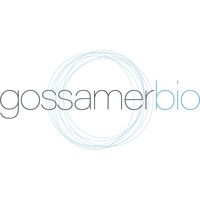Aerovate's shares plummet as inhaled version of Novartis' Gleevec misses the mark in PAH trial
17 Jun 2024
Phase 2Phase 3Drug ApprovalClinical Result

Preview
Source: FiercePharma
Aerovate's stock crashed by more than 93% at the news.
Aerovate Therapeutics’ attempt to use an inhaled formulation of Novartis’ cancer med Gleevec as a treatment for pulmonary arterial hypertension (PAH) didn’t pan out.
After the drug missed the mark in a phase 2b study, Aerovate’s stock price plummeted 93.3% during Monday’s trading.
The drug was a failure through and through. It didn’t make for “meaningful improvements” in the secondary endpoint of change in six-minute walk distance, nor did it hit “several” other secondary endpoints.
Based on the results, the company is putting the breaks on enrollment and shutting down its phase 3 portion of the study. A long-term extension study will also be scrapped.
“The results of the Phase 2b portion of IMPAHCT was unexpected and disappointing,” CEO Tim Noyes said. “Our immediate focus is on transparently sharing these findings with investigators, patients and the PAH community.”
Aerovate will spend the upcoming weeks communicating with the study advisory committee and the wider PAH community to “thoroughly discuss these data and their implications,” Noyes added.
The downfall of Aerovate’s lead and only clincial program could be disastrous for the company. As of Friday, the PAH-focused drugmaker is running on some $100 million of cash, cash equivalents and short-term investments, according to the release.
Despite imatinib’s flop, Leerink Partners analysts saw little implication for Gossamer Bio’s focus and lead candidate seralutinib. Even though both drugs are inhaled PDGFR inhibitors, the two compounds have different kinase inhibition profiles.
Novartis’ Gleevec, a tyrosine kinase inhibitor (TKI), has been marketed since 2001 and is indicated to treat several rare cancer types including chronic myeloid leukemia (CML). As the first approved TKI, the drug is credited with transforming the life expectancy for CML patients to that of the general, cancer-free population and opening the door to other TKIs such as AstraZeneca’s Tagrisso.
Sun Pharma launched the first Gleevec generic back in 2016. According to Aerovate, imatinib has shown clinical efficacy in phase 2 and 3 PAH trials when administered orally but was not approved due to “systemic” side effects. The dry powder form was meant to skirt systemic exposure by delivering the therapy directly to the lungs.
For more details,please visit the original website
The content of the article does not represent any opinions of Synapse and its affiliated companies. If there is any copyright infringement or error, please contact us, and we will deal with it within 24 hours.
Organizations
Targets
Hot reports
Get started for free today!
Accelerate Strategic R&D decision making with Synapse, PatSnap’s AI-powered Connected Innovation Intelligence Platform Built for Life Sciences Professionals.
Start your data trial now!
Synapse data is also accessible to external entities via APIs or data packages. Leverages most recent intelligence information, enabling fullest potential.





